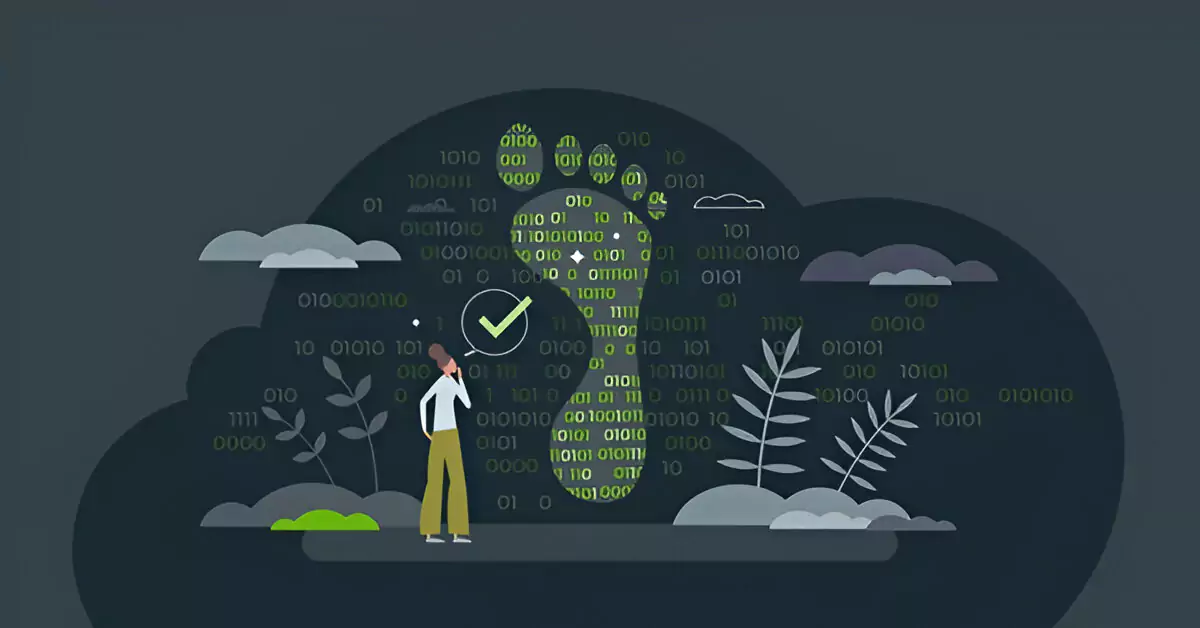The last time you Googled your name? What you discover there may surprise (or even alarm) you. From ancient social media profiles to old blog posts, your digital footprint may contain sensitive information you don’t remember or don’t want the world to know about.
The internet is forever, but with a few simple measures, you can take control of your digital footprint and help protect your personal information. This guide takes you through actionable steps to help erase, or at minimum, drastically minimize your digital footprint and take control of your online persona. If you’re wondering how to erase digital footprint, this guide is your starting point.
What Do You Leave Behind on the Internet?
Before you get to erasing, you need to know what your digital footprint even is. Your digital footprint can be thought of as the entire body of data you leave behind while on the internet. It falls into two categories:
Active Footprint
So that includes information you voluntarily offer up online, such as your social media posts, blog comments, and forum interactions.
Passive Footprint
This means information about you that was taken without your direct input, such as cookies tracking your browsing or location data shared by your devices.
This trail can be made up of everything from where you shop to the articles you’ve read. While it can be useful (recommendations and personalized ads, anyone?), it can too beget privacy dangers if not properly managed.
Why Wipe Out Your Digital Footprint?
You might ask, Why bother? Here are a few important reasons why you might want to limit your digital footprint:
Privacy Concerns
When data leaks and cyber attacks happen, we are becoming increasingly numb to them. The less data about you online, the less at risk you are.
Professional Reputation
Employers frequently search the internet for information about job applicants. A mortifying tweet or a less-than-flattering forum post from 2012 might not be a true representation of you now.
Identity Theft Prevention
The more there is to know about you online, the easier it becomes for some bad actor to impersonate you. That’s why learning how to erase digital footprint can be crucial for protecting your identity.
Steps to Delete Your Digital Footprint
Search for Yourself Online
The first step to shrinking your digital footprint is understanding what’s out there. Search your full name along with any aliases or usernames you’ve gone by on the web (old usernames, nicknames, etc). Look at search engines, like Google and Bing, plus images and videos. Seek out obsolete, incorrect or sensitive information you want off the web.
Tip
Use quotation marks before and after the keyword to narrow down your results (i.e. “Jane Doe”).
Delete Unused Accounts
You know that MySpace account or forum profile you started way back when? They are still there unless you have deleted them. Not all old accounts necessarily don’t hold personal information, and can be subject to a breach.
Here is how to find and delete unused accounts:
-
Look in your email inbox and search for welcome emails or registration confirmations from outdated sites.
-
And search for tools like JustDeleteMe or AccountKiller, which will direct you to pages to close accounts.
Tip
Remove the account content first before deactivating to be sure it will be gone for good.
Tidy Up Existing Social Media Accounts
Old posts and photos alike can be just as harmful as dormant accounts. Spend some time visiting and tidying up your existing social media profiles.
Delete Old Posts and Photos
Get rid of any advice that’s outdated, irrelevant or embarrassing.
Make Accounts Private
And if you don’t feel comfortable with deleting, change your privacy settings to decide who can access your content.
Revisit Tagged Photos
Un-tag yourself from photos you would rather not be seen in that were posted by someone else.
Tip
There are apps such as TweetDelete or Redact, for example, that can help you delete older tweets in batches.
Take Information out of the Databases Open to the Public
Lists that include your contact information, address and other personal details are shared often by data brokers like Whitepages, Spokeo and BeenVerified. These services scrape publicly available data and sell it on the internet.
Here’s how you can delete your information:
-
Go to each data broker’s website and search for their opt-out page.
-
Follow their procedure (usually requires you to manually submit request and identify yourself).
-
Do this periodically, data brokers can refill up your info over time.
If this sounds overwhelming, you might want to try a service like DeleteMe or Privacy Bee to automate that work.
Another step in how to erase digital footprint is staying proactive with public data removal.
Restrict the Future Sharing of Data
If you don’t want your labor to be in vain, it’s time to improve your habits of sharing information.
-
Use Privacy-Focused Browsers
Use web browsers that don’t track you, such as Brave or Firefox. -
Turn Off Location Sharing
Turn off location tracking on your devices unless you need it. -
Watch Your Social Media Posts
Get the free newspaper, but think twice about publishing sensitive or deeply personal information.
Tip
Clear your cookies and cache on your browser often, as that will minimize tracking.
Learning how to erase digital footprint also involves preventing new traces from forming.
Removal Request of Content You Can’t Control
There are times when something personal winds up on a website you don’t control directly, such as a news article or a photo that someone else posted of you. While removing this content is trickier, it’s not impossible.
-
Contact Website Owners
Email the webmaster or administrator of the site and politely ask them to take down the content in question. -
Try Google’s Remove Outdated Content Tool
If the information is no longer available on a website but still appears in search results, Google’s tool can assist in getting it delisted.
Note
Not all requests are granted, but it never hurts to ask.
Secure Your Email Address
Your email may be vulnerable to spam, phishing, and even hacking.
-
Use Temporary Email Addresses
For users, it involves employing throwaway email addresses produced by services like Guerrilla Mail or 10 Minute Mail. -
Turn on 2FA
Easy-to-see but easy-to-skip advice: the single best thing you can do to protect the accounts that matter to you is enable Two-Factor Authentication.
Secure your primary email with 2FA.
Audit Your Online Presence Often
While you may have done a thorough job of cleaning up, it’s still important to check in periodically on your online presence. Make an appointment for a semi-annual check-up to go over these steps, and make sure nothing new has reared its ugly head.
That’s an important ongoing process in understanding how to erase digital footprint completely over time.
Protect Your Privacy Today
Though you can never fully delete your digital footprint, these steps will greatly reduce how much you’re shown online. Through auditing old accounts, wiping social media clean and taking on better data-sharing habits, you can lower your risk and reclaim your online presence.
Not only does it protect you, but it gives you that peace of mind in a time when our worlds continue to grow more interconnected. Begin by searching for yourself on Google and seeing what’s out there.
For further advice on safeguarding your digital identity, sign up for our newsletter or delve into our comprehensive privacy guides on how to erase digital footprint and online security.
Learn more about: What Is a Digital Footprint and Why It’s Important



